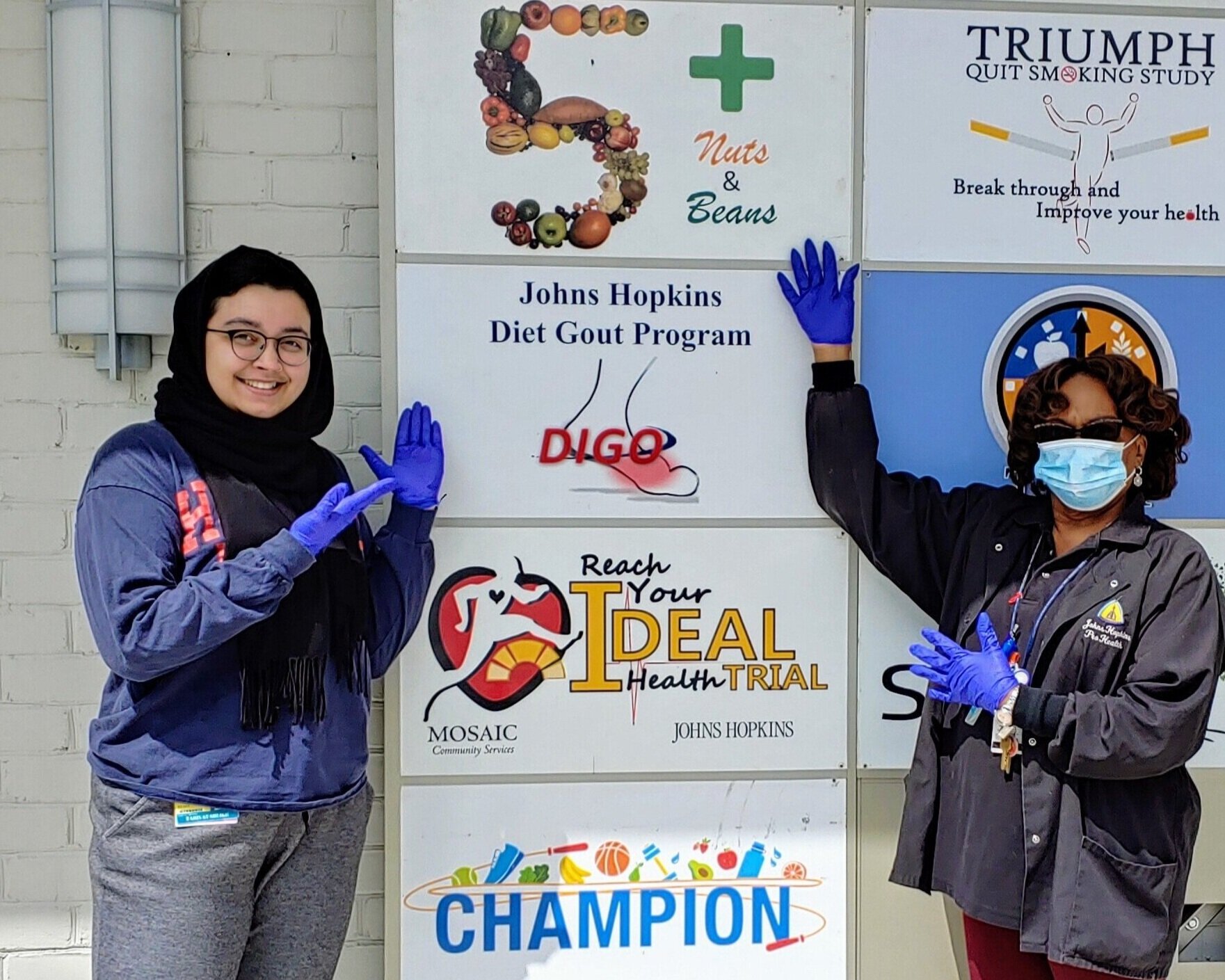Five Plus Nuts and Beans Study Update
The 5 + Nuts & Beans for Kidneys study logo.
Many Black Americans often face barriers to eating foods that are healthy, and poor diet is one reason why Black populations have high rates of high blood pressure, kidney disease, obesity and heart disease. The Johns Hopkins University Center for Health Equity’s “Five Plus Nuts and Beans for Kidneys” study explores whether coaching on food choices can improve kidney health and blood pressure among low-income African Americans in the Baltimore area.
BACKGROUND
In the “Five Plus Nuts and Beans for Kidneys” study, 150 patients are split into two groups, Coached and Self-Directed. The Coached group receives a weekly grocery allowance of $30 for four months and ongoing help in selecting healthy foods each week for the length of the study. The Self-Directed group receives a brochure about healthy eating as well as the weekly $30 grocery allowance for four months without any additional coaching. After four months, the $30 grocery allowance is ceased for both groups, and the study tests whether on-going coaching helps patients make better food choices than the group without coaching. The effects of the food choices for both groups are measured by checking patients’ kidney health and blood pressure.
PROGRESS MADE TO DATE
Due to the pandemic, our team has had to follow the safety rules developed for the entire Johns Hopkins University. These rules put strong public health safety measures in place for when patients could resume in-person study visits. We have also had to develop new safety guidelines for staff and patients involved with the study, such as changing in-person work to remote work by telephone. We worked with our study partners, including ShopRite and the grocery delivery service, to make sure they follow public health safety measures to protect patients and study staff. We kept our study patients informed about all of these changes.
In August, our study was approved by the Johns Hopkins Medicine Institutional Review Board (IRB) to restart in-person visits and to enroll new patients. The new study patients are following the revised rules put in place for office visits.
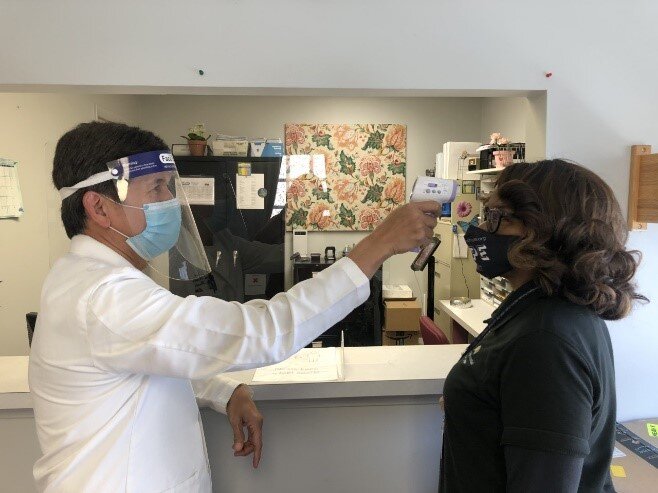
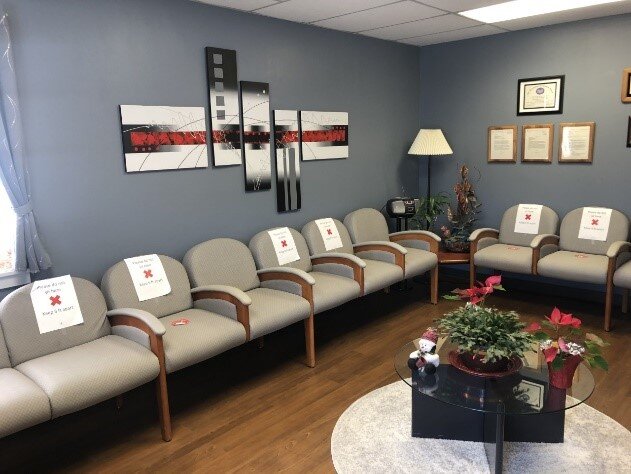
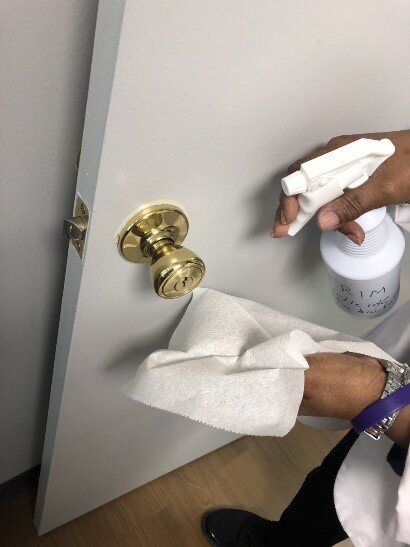
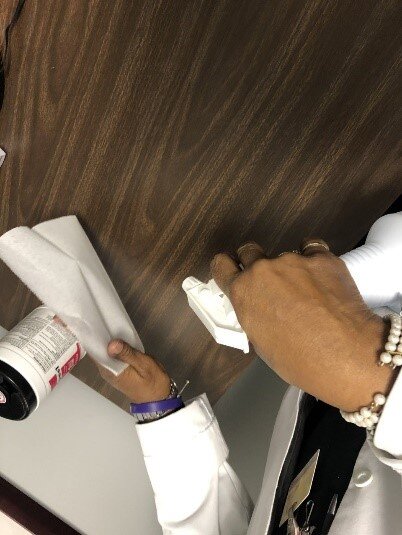
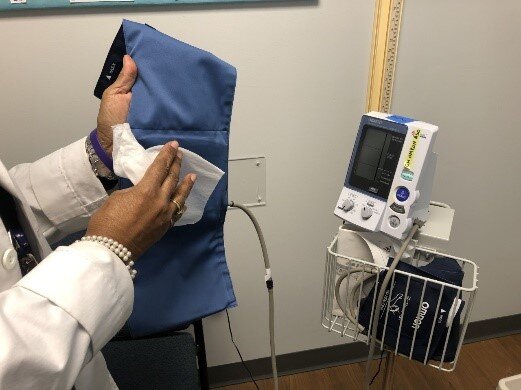
By the end of September, we were again accepting new patients into the study. Although we lost one clinic because they re-organized (unrelated to the pandemic), a kidney health clinic in the Baltimore region began sending patients to the study so we continue to make progress.
As of December 1st, 89 patients have completed the entire study. The new patients added since late September are settling into the routines of the COVID-adjusted study. We met with our Community Advisory Board to update and receive feedback on the progress of our study, and we look forward to meeting with our Data and Safety Monitoring Board in February to describe and discuss our progress as well.
In addition to our work on the main study, we hit several goals on two related studies on food choices.
The PhotoVoice Project engaged 25 patients (who were not in the main trial) to use cameras to capture images and discuss the food options available in their neighborhoods. The project has been finished and some of the early discoveries were presented at the annual American Heart Association’s Scientific Sessions in November (https://www.ahajournals.org/doi/abs/10.1161/circ.142.suppl_3.14820). A PhotoBook and Cookbook will be published and distributed to the study patients as well as to the public.
As part of the PhotoVoice Project, led by Dr. Anika Hines, patients captured images of the types of grocery stores in their local neighborhood.
Some patients photographed their own gardens as their source for vegetables.
Research study team members, Tahiyat Sheikh (left) and Debra Gayles (right), display the Five Plus Nuts and Beans for Kidneys study logo outside ProHealth where research visits take place.
We also accepted 25 patients for a new project which interviewed individuals who completed the “5 Plus Nuts and Beans for Kidneys” study. We asked patients a series of questions about their experiences in the study, and about what it was like to try and eat healthy before, during and after the study. We are currently studying these interviews to identify common ideas. We plan to prepare reports on these interviews by early Spring and present them to the public in the Fall of 2021. We received some very nice comments from patients about taking part in the “5 Plus Nuts and Beans for Kidneys” study:
“I would give the study on a scale of one to ten and one being the worst, I would give the study a 20. And every part, the way you all have it set up, the way it was set up, the people that worked, the interviewers, everything. Like I said, from one to ten, I give you all a 20. I will recommend my friends to come to you without a doubt.”
“I was honored to be in the program. I like the fact that I was motivated on eating healthier from the program.”
“I just love it, I mean, love it, love it, love it. You all couldn't done a better job with the 5+Nuts and Beans [for Kidneys] study.”
RELEVANT LEARNING RESOURCES




